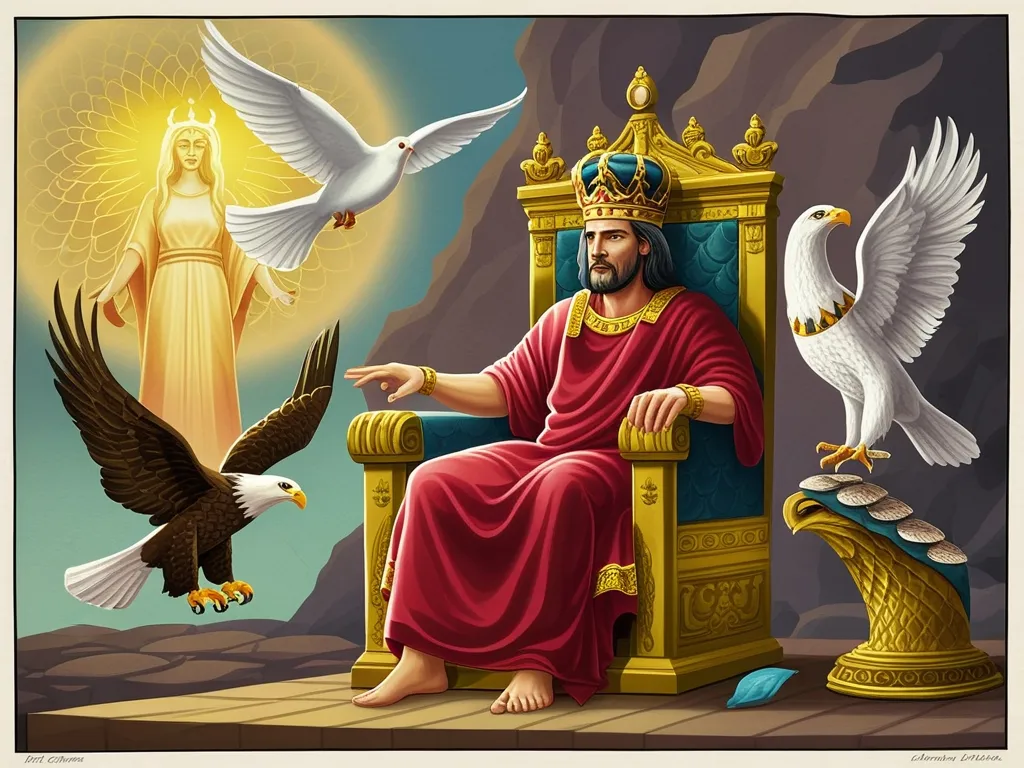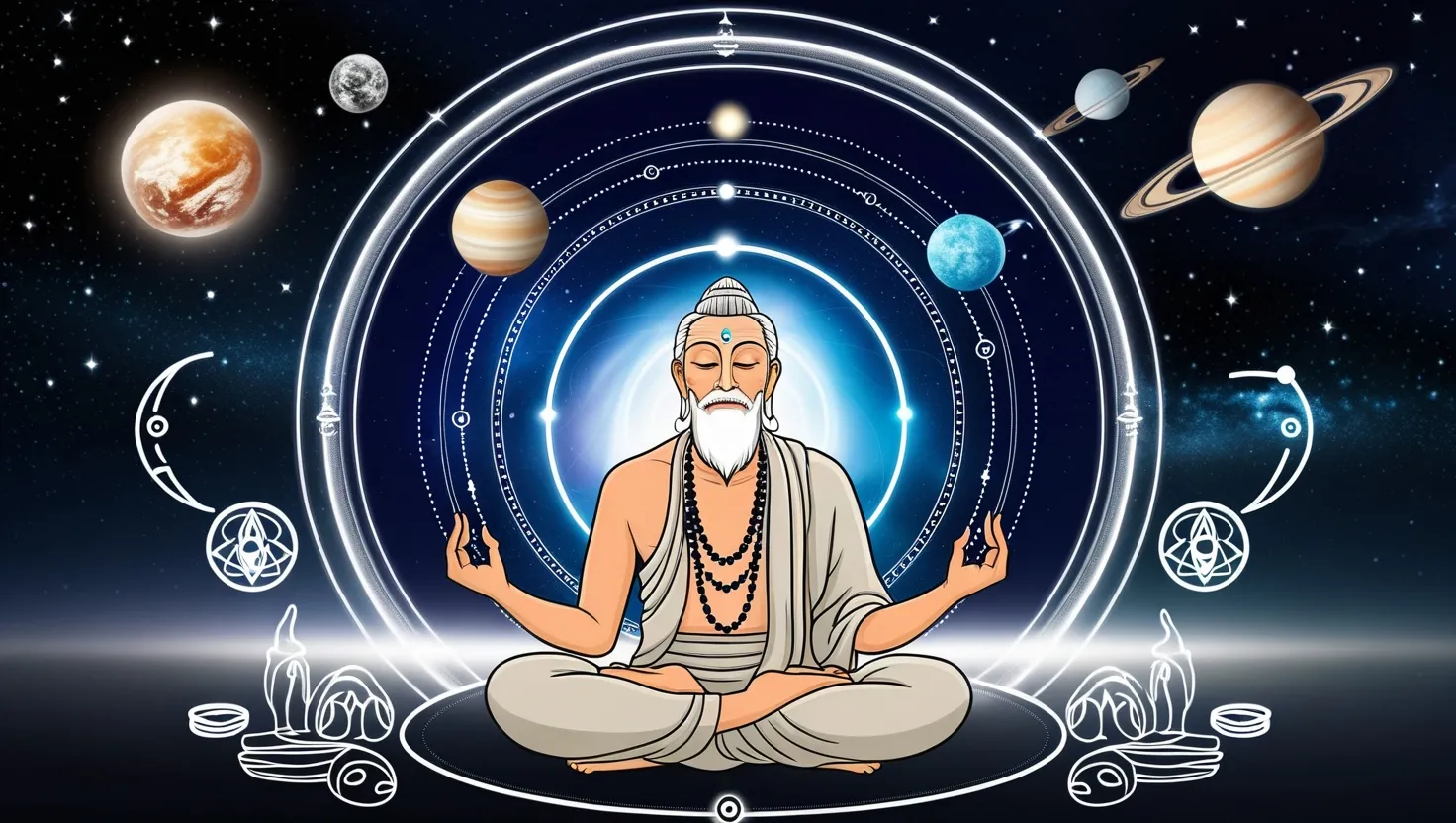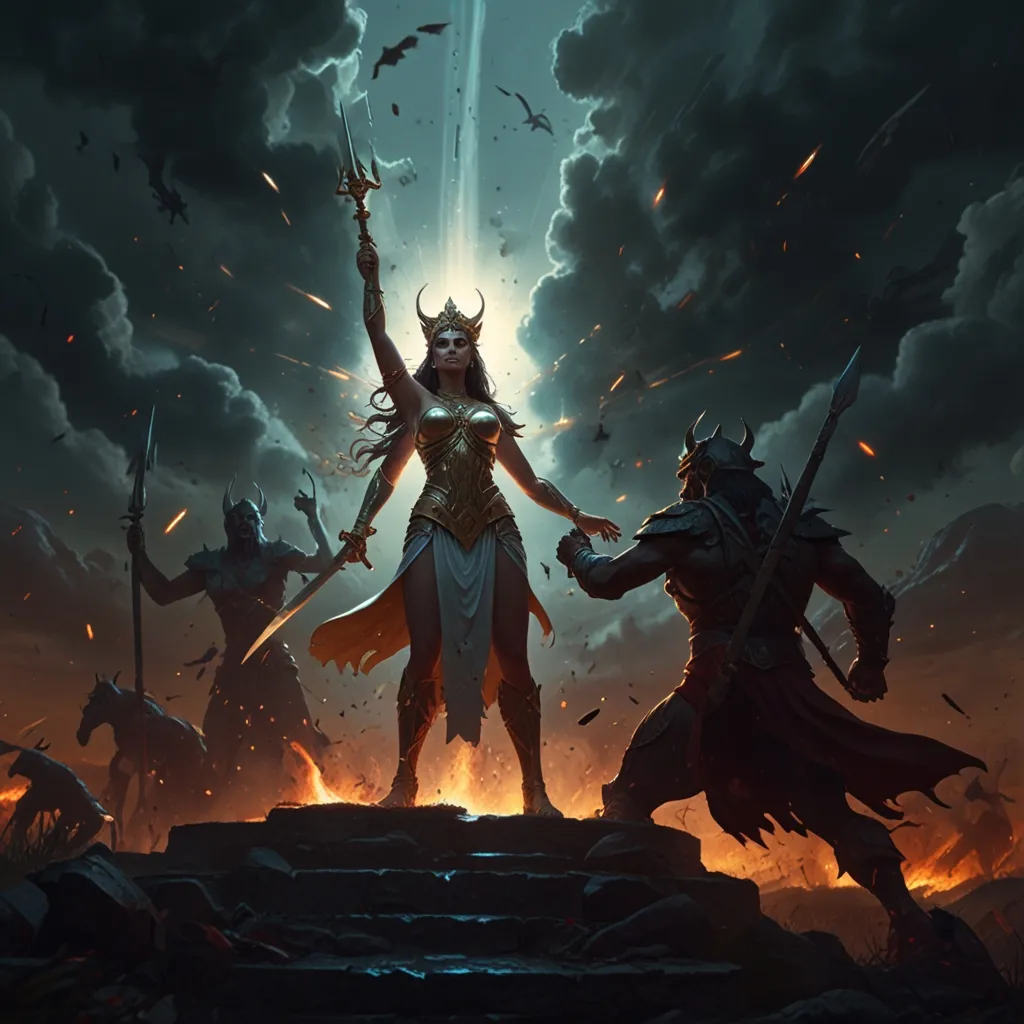As we delve into the rich and intricate world of Hindu mythology, there are figures who, though not as widely celebrated as the epic heroes, embody the very essence of dharma and selflessness. One such figure is King Shibi, a ruler whose stories are scattered across various Hindu texts, each narrative a testament to his unwavering commitment to righteousness and sacrifice.
King Shibi, a descendant of the illustrious King Bharata of the lunar dynasty, was renowned for his truthfulness, justice, and unwavering dedication to his word. His reign was marked by a deep sense of equality and the welfare of his subjects, making him a beloved and respected leader. However, it is not just his governance that makes him a paragon of virtue, but the extraordinary tests he faced and the sacrifices he made in the name of dharma.
One of the most compelling stories about King Shibi involves a dove and an eagle, a tale that highlights his extraordinary compassion and commitment to protecting the weak. On a fateful day, while the king was alone on the terrace of his palace, a dove flew towards him, pursued by an eagle. The dove, desperate for refuge, sought the king’s protection, and Shibi, true to his vow to safeguard anyone who sought his shelter, promised to save the dove’s life.
The eagle, however, was relentless in its demand for the dove, arguing that it was its rightful prey and that denying it would be unjust. Here, King Shibi faced a profound dilemma: how could he protect the dove without depriving the eagle of its food? This was not just a simple conflict but a test of his dharma, a challenge to balance his duty to protect the weak with the natural order of things.
Shibi’s solution was nothing short of extraordinary. He offered to give the eagle an equal amount of flesh from his own body, a gesture that stunned all who witnessed it. The eagle agreed, but with a condition: the flesh had to weigh exactly the same as the dove. The king, undeterred, began to cut pieces of his own flesh and place them on the scales. Despite his immense pain and the anguish of his family and courtiers, he continued until almost his entire body had been cut, yet the scales still did not balance.
In a moment that defines the depth of his sacrifice, King Shibi decided to sit on the scales himself, offering his entire being to save the dove. It was at this point that the divine test was revealed; the eagle and the dove transformed into Indra, the King of the heavens, and Agni, the God of Fire. These gods were so pleased with Shibi’s unwavering commitment to dharma that they restored his body to its original state and showered him with boons and praise.
This story, while well-known in some circles, is just one of many that illustrate King Shibi’s character. Another account, found in lesser-known Puranas, tells of a similar test where Indra and Brahma, disguised as a hawk and a dove, came to earth to examine Shibi’s resolve. Here again, the king’s compassion and selflessness were put to the ultimate test, and he emerged as a shining example of dharma.
What makes King Shibi’s stories so powerful is not just the grand gestures of sacrifice but the underlying principles they represent. His actions were guided by a deep understanding of the interconnectedness of all life and the duty to protect and nurture every living being. This is a lesson that transcends time and culture, reminding us of the importance of empathy and the value of every single life form.
In an era where leadership is often measured by power and wealth, King Shibi’s legacy serves as a beacon of moral integrity. His leadership was not about personal gain but about the welfare of his subjects and the greater good. He set a precedent for leaders to strive for the well-being of all, demonstrating that true greatness lies not in material wealth but in the depth of one’s compassion and commitment to dharma.
The story of King Shibi also highlights the virtue of sacrifice, a principle deeply rooted in Vedic ideology. His selfless actions were not just about saving a dove but about upholding the principles of yajna, or sacrifice, which contribute to the greater good. This willingness to endure personal suffering for the sake of others is a powerful reminder of the transformative power of selflessness.
As we reflect on King Shibi’s narratives, we are encouraged to contemplate the balance between duty and desire. In a world filled with complexities and conflicting interests, his stories offer fresh perspectives on integrity, leadership, and the pursuit of virtue. They remind us that ethical courage is not just a moral imperative but a personal and societal necessity.
In today’s world, where the value of life is often undervalued and compassion seems to be in short supply, King Shibi’s tales serve as a poignant reminder of the true value of every life form. His unwavering dedication to dharma inspires us to reevaluate our own actions and commitments, encouraging us to embrace a life guided by empathy and selflessness.
As we wander through the intricate world of Hindu mythology, King Shibi’s stories stand out as beacons of moral integrity and selflessness. They are not just ancient tales but living lessons that continue to inspire generations. His legacy is a testament to the enduring power of dharma, a reminder that true greatness lies in the depth of our compassion and our unwavering commitment to the welfare of all beings.
In the end, King Shibi’s stories are more than just narratives from lesser-known Puranas; they are moral compasses that guide us through the complexities of life. They remind us that the path of dharma is not always easy but that it is a journey worth taking, for it is in the pursuit of righteousness and selflessness that we find true meaning and purpose. As we navigate the challenges of our own lives, let King Shibi’s unwavering dedication to dharma be our inspiration, guiding us towards a life of integrity, compassion, and virtue.






